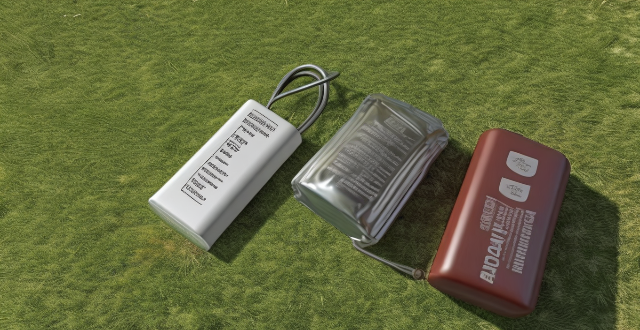Condition Medication

How can I customize my emergency kit for specific medical needs ?
Customizing an emergency kit for specific medical needs is crucial for individuals with health conditions. To tailor your kit, assess your medical needs, list down medications, and identify potential complications. Incorporate specialized equipment like diabetes management tools or heart condition medication. Include general first aid supplies, information cards, and instruction manuals. Don't forget communication tools and personal comfort items to alleviate stress during emergencies. Being prepared can significantly impact managing your health in disaster situations.

Can exercise be a substitute for medication in treating some forms of emotional distress ?
This article explores the potential benefits of exercise in treating emotional distress, such as anxiety and depression, and discusses whether it can be a substitute for medication. While exercise has numerous benefits for mental health, including stress reduction and improved sleep quality, it may not be suitable for everyone or replace medication in all cases. Factors such as symptom severity and individual differences should be considered when determining the best approach to managing emotional distress. Exercise should be viewed as part of a comprehensive treatment plan that includes medical care, therapy, and lifestyle changes tailored to the individual's needs.

How does having a pre-existing condition impact my ability to buy insurance ?
The text discusses the impact of pre-existing conditions on insurance purchase, including eligibility, cost, waiting periods, exclusions and limitations. It also provides tips for buying insurance with a pre-existing condition such as researching options, disclosing relevant information, considering government-sponsored plans, and working with an insurance broker.

How can sports medicine help athletes manage chronic conditions such as asthma or diabetes ?
Sports medicine aids athletes with chronic conditions like asthma or diabetes by offering education, personalized treatment plans, environmental controls, dietary management, medication oversight, and psychological support to ensure they can safely continue their sports activities.

Can wearable technology effectively monitor chronic health conditions ?
Wearable technology shows potential in monitoring chronic health conditions by providing real-time data on health metrics. However, accuracy, data overload, and privacy concerns are limitations to consider. It should be used in conjunction with other forms of healthcare monitoring for effective management of chronic conditions.

What are the long-term consequences of untreated mental health conditions in women ?
The text discusses the severe and long-lasting consequences of untreated mental health conditions in women, which can affect their overall well-being, relationships, and quality of life. These consequences can be physical, emotional, and social, and they often compound over time. The most significant long-term effects include increased risk of chronic diseases, compromised immune system, sleep disorders, escalation of symptoms, self-medication, suicidal thoughts and behaviors, strained interpersonal relationships, workplace challenges, financial difficulties, reduced life satisfaction, limited participation in activities, and poor self-esteem. It is essential to recognize that these conditions do not improve over time without intervention and instead worsen, causing a ripple effect that touches every aspect of a woman's life. Early detection and treatment are crucial for managing mental health disorders effectively and preventing these long-term consequences. Seeking support from professionals such as therapists, psychiatrists, or counselors can provide the necessary tools and resources to address mental health concerns and improve overall well-being.

How do I prepare a travel first aid kit for my next trip ?
When preparing for your next adventure, it's essential to pack a travel first aid kit. This will ensure that you are prepared for any unexpected injuries or illnesses that may occur while away from home. Here are some steps to follow when creating your own travel first aid kit: 1. Choose the right bag or container that is durable, compact, and easy to carry. A waterproof bag with multiple compartments and pockets is ideal as it allows for efficient organization of supplies. 2. Pack essential medical supplies such as bandages, antiseptic wipes, gauze pads, adhesive tape, and scissors. These items are crucial for treating cuts, scrapes, and other minor injuries. Include pain relievers, allergy medication, and motion sickness pills. 3. If taking regular medications, bring enough to last throughout the trip. Over-the-counter drugs like antacids, laxatives, and anti-diarrheal pills should also be packed, along with any prescription medications needed. 4. Depending on the destination and activities planned, specialized items may be necessary. For example, insect repellent, sunscreen, and blister kits are useful for hiking or camping trips. Anti-malarial medication and water purification tablets are important for tropical climates. 5. Customize the travel first aid kit based on individual needs. If allergies or chronic conditions exist, include appropriate medications and supplies. Don't forget to pack a small first aid manual or guidebook for reference in case of an emergency.

Can counseling help women overcome postpartum depression ?
Postpartum depression is a serious mental health condition that affects new mothers after childbirth. Symptoms include sadness, anxiety, and exhaustion, making it difficult for women to care for their babies or themselves. Counseling has been shown to be an effective treatment option for PPD. It provides a safe space to express emotions, identifies triggers, builds coping skills, enhances self-care, improves relationships, and supports medication management. If you or someone you know is experiencing symptoms of postpartum depression, consider seeking professional counseling to get the support and guidance needed to overcome this challenging condition.

What are some effective strategies for managing chronic conditions as part of personal health care ?
Managing chronic conditions requires a combination of self-care, education, lifestyle changes, and support from others. Developing a self-care plan, educating yourself about your condition, making healthy lifestyle choices, and seeking support from family and friends are all effective strategies for managing chronic conditions. By taking an active role in managing your symptoms and communicating effectively with your healthcare team, you can improve your overall quality of life and reduce the impact of your condition on your daily activities.

Can you recharge a dead lead-acid battery ?
Recharging a dead lead-acid battery is possible, but it depends on the condition of the battery and how long it has been discharged. Here are some steps to follow when attempting to recharge a dead lead-acid battery: Check the battery's condition, determine the battery's voltage, choose the right charger, connect the charger to the battery, monitor the charging process, and test the battery after charging. In summary, recharging a dead lead-acid battery is possible as long as the battery is in good condition and the correct charging procedures are followed.

What are the common fertility issues faced by women ?
Fertility issues can be a sensitive and complex topic for many women. There are several common fertility problems that women may face, which can impact their ability to conceive and carry a pregnancy to term. These include ovulation disorders, endometriosis, uterine fibroids, tubal blockage, and age-related infertility. It's important for women who are struggling with fertility to seek medical advice and explore treatment options that best suit their individual needs and circumstances.

Is it safe to drive at night during a road trip ?
Driving at night during a road trip can be exhilarating but also risky due to reduced visibility and potential for drowsiness. To ensure a safe journey, consider safety precautions such as checking headlights and fog lights, taking breaks every two hours or 100 miles, being extra vigilant in areas with wildlife, maintaining vehicle condition, using technology wisely, being prepared for emergencies, checking weather conditions, obeying legal requirements and regulations, and getting adequate sleep before starting the trip. By following these guidelines, you can help ensure a safer journey under the stars.

Is there a link between endometriosis and infertility ?
Endometriosis is a condition where tissue that normally lines the uterus grows outside of it, leading to inflammation, scarring, and adhesions in the pelvis. This can make it difficult for sperm to reach the egg or for the egg to be fertilized. Additionally, endometriosis can cause hormonal imbalances that can affect ovulation and menstrual cycles. While the severity of endometriosis does not always correlate with the degree of infertility, it is one of the most common causes of female infertility. Other factors such as age, lifestyle choices, genetics, and other medical conditions can also contribute to infertility. If you are struggling with fertility issues, it is important to talk to your doctor about all of your options and to get a thorough evaluation to determine the underlying cause.

What is the difference between acute and chronic conditions in first aid ?
The article discusses the difference between acute and chronic conditions in first aid, highlighting key points to remember for each type. Acute conditions are sudden, severe, and short-term, often requiring immediate action and potentially lifesaving interventions. Examples include heart attack, stroke, severe allergic reactions, fractures or dislocations, poisoning, severe burns or scalds, and severe bleeding or shock. Key points to remember for acute conditions are to act quickly, call for help, and stabilize the patient while waiting for professional medical assistance. Chronic conditions, on the other hand, are long-term health problems that persist over time and often require ongoing management rather than urgent intervention. Examples include diabetes, asthma, high blood pressure, arthritis, COPD, migraines, and epilepsy. Key points to remember for chronic conditions are to know the patient's history, monitor symptoms, seek medical advice, and educate yourself about the specific condition. In summary, understanding the differences between acute and chronic conditions is essential when providing first aid to ensure appropriate care is given based on the nature of the condition.

What are the symptoms of hypothermia and how can I treat it ?
The text discusses the symptoms and treatment of hypothermia, a condition that occurs when the body loses heat faster than it can produce. Symptoms include shivering, slurred speech, slow breathing, weak pulse, clumsiness, drowsiness, confusion, and loss of consciousness. Treatment involves moving the person to a warm location, removing wet clothing, warming them up gradually with blankets or hot water bottles, giving them warm fluids, and seeking medical attention immediately. The text emphasizes the importance of prevention by dressing appropriately for cold weather conditions, staying dry, and limiting time outdoors during extreme weather events.

How can parents recognize and respond to signs of postpartum depression ?
Recognizing Signs of Postpartum Depression (PPD) is crucial for new mothers to seek help if needed. Common signs include persistent sadness, difficulty bonding with the baby, changes in appetite or sleep patterns, irritability, withdrawal from social activities, and thoughts of harming oneself or the baby. If you notice any of these symptoms, take action by talking to your doctor, seeking support from loved ones, joining a support group, taking care of yourself, and considering professional help. Remember, seeking help is not a sign of weakness; PPD is a real medical condition that requires attention and treatment.

Are pre-existing medical conditions covered by travel insurance ?
Travel insurance coverage for pre-existing medical conditions varies by policy and provider. Factors influencing coverage include the type of policy, deductibles and limits, waiting periods, and disclosure of information. Some policies offer limited or comprehensive coverage for these conditions, while others exclude them altogether. It is crucial to research different policies and consult with an insurance professional to find the best coverage for your individual needs.

How does sports medicine differ from traditional medicine ?
Sports medicine is a specialized field that focuses on preventing, diagnosing, and treating injuries related to physical activity and sports. It differs from traditional medicine in several key ways: 1. **Prevention vs. Treatment**: Sports medicine emphasizes injury prevention through physical assessments, customized training programs, and equipment recommendations. Traditional medicine often deals with treating injuries after they occur, using diagnosis, medication, and surgery. 2. **Specialization vs. Generalization**: Sports medicine professionals are highly specialized in understanding the needs of athletes, while traditional medicine practitioners have a more generalized approach. 3. **Collaborative Care vs. Solo Practice**: Sports medicine involves a collaborative team effort, including coaches, trainers, physicians, and therapists. Traditional medicine may be more focused on individual practitioners working independently.

How can older adults with chronic conditions incorporate exercise into their daily routine ?
Incorporating exercise into the daily routine of older adults with chronic conditions is crucial for maintaining their overall health and well-being. Here are some tips on how they can achieve this: * Start slowly by gradually increasing the duration and intensity of low-impact exercises like walking or swimming. * Choose appropriate exercises that focus on strength training, flexibility, and range of motion to reduce the risk of injury. * Set realistic short-term and long-term goals to build momentum and confidence. * Make exercise a habit by scheduling specific times during the day and creating a routine. * Stay safe and comfortable by wearing appropriate gear, staying hydrated, and seeking professional advice when needed. * Track progress in a journal and celebrate milestones to stay motivated.

Can exercise reverse heart disease ?
Heart disease is a major cause of death worldwide, and it can be devastating to those affected. While there are many treatments available for heart disease, including medication and surgery, some people wonder if exercise can reverse the damage caused by heart disease. There is evidence that regular exercise can help prevent and manage heart disease by improving cardiovascular health, managing weight, lowering blood pressure, improving cholesterol levels, and reducing stress. However, there is no conclusive evidence that exercise can completely reverse heart disease. Despite this, there are still many benefits to regular exercise for heart health. If you have been diagnosed with heart disease or are at high risk for developing it, talk to your doctor about starting an exercise program. They can help you create an exercise plan that is safe and effective for your individual needs and goals.

Are there any side effects of taking sports supplements ?
Sports supplements can enhance athletic performance and support recovery, but potential side effects include digestive issues from protein supplements, dehydration from creatine, increased heart rate from pre-workout stimulants, cardiovascular risks from weight loss supplements, and overdose risks from multivitamins. It is recommended to consult with a healthcare professional before starting any supplement regimen to ensure safety and effectiveness.

What happens if I get injured while playing sports and don't have insurance ?
Injuries are a common occurrence in sports, and they can range from minor to severe. When you get injured while playing sports, the first thing that comes to mind is seeking medical attention. However, what happens if you don't have insurance? This article will explore the consequences of not having insurance when you get injured while playing sports. If you get injured while playing sports and don't have insurance, you will be responsible for paying all the medical expenses out of pocket. This can include doctor visits, hospital stays, surgery, physical therapy, and medication. Depending on the severity of the injury, these expenses can add up quickly and become a financial burden. Without insurance, you may have limited access to healthcare providers. Some doctors and hospitals may refuse to treat patients without insurance or may require upfront payment for services rendered. This can delay treatment and potentially worsen your condition. If your injury occurs during a team sport or an organized event, there may be legal implications if you don't have insurance. The organizers or other players may hold you liable for any damages or injuries that occur during the game. This can result in lawsuits and legal fees. Not having insurance can also have long-term effects on your health and well-being. If you cannot afford proper medical care or physical therapy, your injury may not heal properly, leading to chronic pain or disability. This can impact your ability to work or participate in activities you enjoy. The best way to avoid these consequences is to get insurance coverage. There are various types of insurance policies available, including health insurance, accident insurance, and sports-specific insurance. Research and compare different policies to find one that meets your needs and budget. Another way to reduce the risk of injury is to participate in low-risk sports or activities. Choose sports that are less likely to cause severe injuries, such as swimming or cycling, instead of contact sports like football or rugby. Wearing protective gear can also help prevent injuries while playing sports. Make sure to wear appropriate gear such as helmets, pads, and mouthguards when participating in high-risk activities. If you do get injured while playing sports, seek medical attention promptly even if you don't have insurance. Some healthcare providers offer payment plans or sliding scale fees based on income, which can help alleviate some of the financial burden associated with receiving medical care. In conclusion, getting injured while playing sports without insurance can have serious consequences, including high medical expenses, limited access to healthcare, legal liability, and long-term effects on your health and well-being. To avoid these consequences, it is important to get insurance coverage, participate in low-risk sports, use protective gear, and seek medical attention promptly if needed.

How does exercise impact glucose metabolism and insulin sensitivity ?
Exercise is crucial for maintaining healthy glucose metabolism and insulin sensitivity. It lowers blood sugar levels by increasing glucose utilization in muscles, stimulates new glucose production through gluconeogenesis, and improves insulin sensitivity by reducing inflammation and oxidative stress. Regular exercise can help prevent or manage diabetes by improving blood sugar control, reducing the risk of complications, and promoting overall health and well-being. However, people with diabetes should consult their healthcare provider before starting an exercise program to ensure safety and effectiveness.

Are there any risks associated with the treatments offered at sports rehabilitation centers ?
Sports rehabilitation centers offer a range of treatments aimed at helping athletes recover from injuries and improve performance, but there are potential risks associated with these therapies. Incorrect diagnosis or misdiagnosis, overexertion or reinjury, adverse reactions to treatments, infection risks, and long-term effects of treatments are some of the common risks associated with sports rehabilitation treatments. Athletes should work closely with their therapists to ensure proper diagnosis and treatment planning while being aware of potential risks and seeking prompt medical attention if needed.

What are the treatment options for COVID-19 ?
The text is about the different treatment options for COVID-19. The treatments are divided into symptomatic treatment, antiviral treatment, monoclonal antibodies, convalescent plasma therapy, supportive care, and other potential therapies. Symptomatic treatment includes rest and hydration, pain relievers, and antibiotics if necessary. Antiviral medications such as Remdesivir and Favipiravir may be used in severe cases to suppress the virus. Monoclonal antibodies like Bamlanivimab and Casirivimab and Imdevimab can be used to treat certain patients at high risk of developing severe illness. Convalescent plasma therapy involves collecting blood plasma from recovered patients and transfusing it into active patients. Supportive care includes oxygen therapy, mechanical ventilation, and corticosteroids. Other potential therapies being investigated include interferon, nitazoxanide, and experimental drugs currently in clinical trials.

What are some effective treatments for sports injuries ?
Effective Treatments for Sports Injuries: Rest, Ice, Compression, Elevation, Medication, and Rehabilitation Exercises.